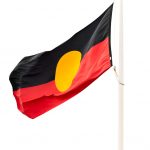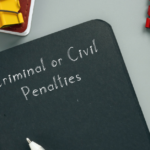Family Compensated Over Unlawful Police Raid

Aboriginal elder Marjorie Rose has been waiting a long time for justice – but her day has finally come, with a District Court Judge recently awarding the 81-year-old woman and her family $370,000 in compensation for an illegal police raid.
In July 2008, Marjorie was at home with her friends and family when police smashed through her door with a hammer, stormed the property and conducted an extensive search. All ten occupants of the house, including children, were forcibly strip-searched and detained during the humiliating and disturbing incident.
Although it occurred almost eight years ago, Marjorie still remembers the incident vividly:
‘The raid happened early in the morning and the door was broken down by a big hammer…They wanted to search the kids and I remember arguing with them about that. They took the girls into a room without supervision. I couldn’t go to the toilet, they wouldn’t let me.’
During the raid, Marjorie was forced to strip down to her underwear in front of a camera – before police felt around her bra and underpants. District Court Judge Sharron Norton, who reviewed the footage, noted that:
‘Mrs Rose’s breasts were exposed and she appeared very uncomfortable, confused, and distraught.’
Understandably, the incident was incredibly traumatic for Marjorie. She was so affected by that she moved out of the home she occupied with her husband for over 50 years to another house in Dubbo.
Other family members also reported feeling distressed after the traumatic event. Marjorie’s daughter, Dianne Edwards, who was visiting her mother at the time, recalled being forcibly strip-searched by police and not being allowed to use the toilet, despite the fact she was menstruating.
Marjorie’s grandson, 16-year-old Tyrone Kelly, also has painful memories. He was asleep on his grandmother’s couch when police entered and strip-searched him and his family. Tyrone recalls:
‘I was [strip-searched], and they filmed it. There should have been an adult with me, but there was just two police officers, I was pretty scared.’
Police say they thought one of Marjorie’s relatives was a drug dealer, and that they would locate drug paraphernalia. But no drugs were found and no arrests were made during the search.
It later transpired that the warrants police had obtained were invalid – and accordingly, the search was unlawful. The Court found that police had unlawfully detained Marjorie and her family and committed acts of battery, aggravated damages and trespass.
As usual, the damages will ultimately be borne by the taxpayer, not the offending officers, and no disciplinary action has been brought in respect of the conduct.
What Does the Law Say About Strip Searches?
Strip searches and other NSW police powers are regulated by the Law Enforcement (Powers and Responsibilities) Act 2002.
Section 31 relates to strip searches generally, which can only be carried out,
‘if the police officer or other person suspects on reasonable grounds that it is necessary to conduct a strip search of the person for the purposes of the search and that the seriousness and urgency of the circumstances require the strip search to be carried out.’
Section 32 requires a person’s privacy and dignity to be preserved during a strip search, imposing a number of obligations on police including:
- Informing the person that they will be required to remove their clothing during the search;
- Telling them why it is necessary to remove their clothing;
- Asking for their co-operation during the search;
- Conducting the search ‘in a way that provides reasonable privacy for the person searched’ and ‘as quickly as is reasonably practicable’;
- Conducting ‘the least invasive kind of search practicable in the circumstances’;
- Not searching the genital area of the person being searched, or in the case of female or a transgender person who identifies as a female, the person’s breasts unless the police officer suspects on reasonable grounds that it is necessary to do so for the purposes of the search;
- The search must be carried out by a police officer of the same sex as the person being searched;
- Not carrying out a search while the person is being questioned;
- Allowing a person to dress as soon as the search is finished;
- If clothing is seized during the search, police must ensure that person is left or provided with reasonable appropriate clothing.
In relation to strip searches involving children over the age of 10, but under the age of 18, section 33 requires that the searches:
‘…must, unless it is not reasonably practicable in the circumstances, be conducted in the presence of a parent or guardian of the person being searched or, if that is not acceptable to the child or person, in the presence of another person (other than a police officer) who is capable of representing the interests of the person and who, as far as is practicable in the circumstances, is acceptable to the person.’
While the result is a welcome outcome for Marjorie and her relatives, the incident raises serious concerns about the actions of police in carrying out searches upon vulnerable persons such as Aboriginal people and children.






